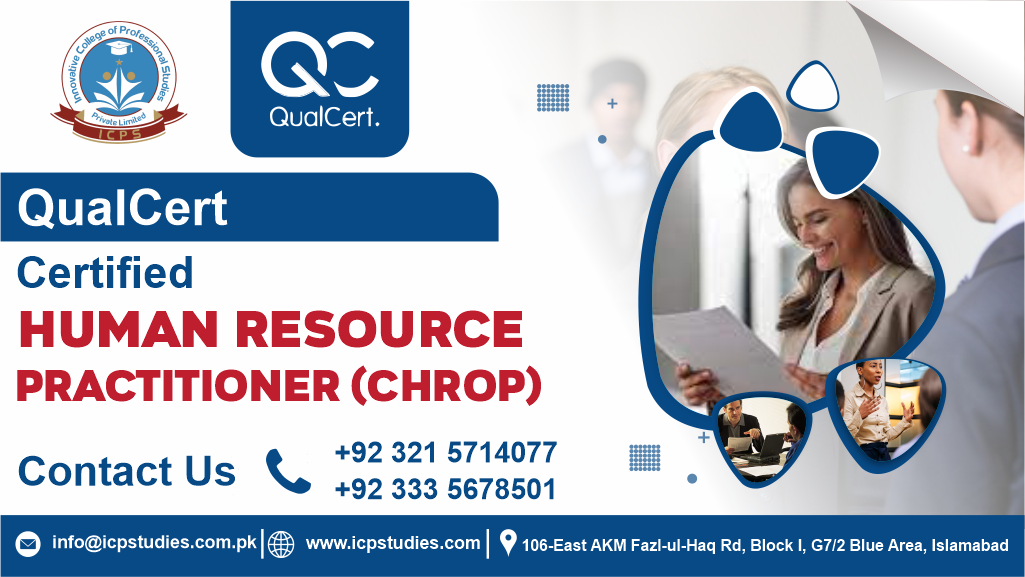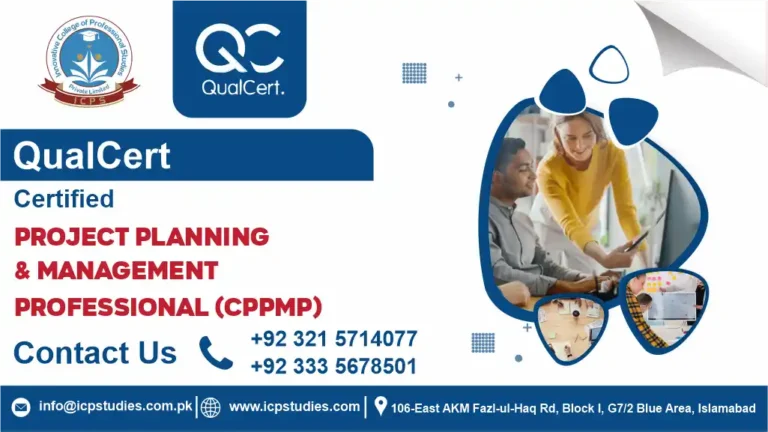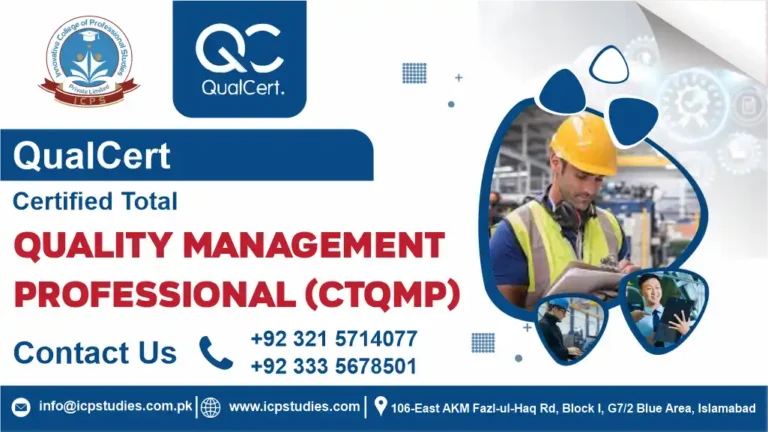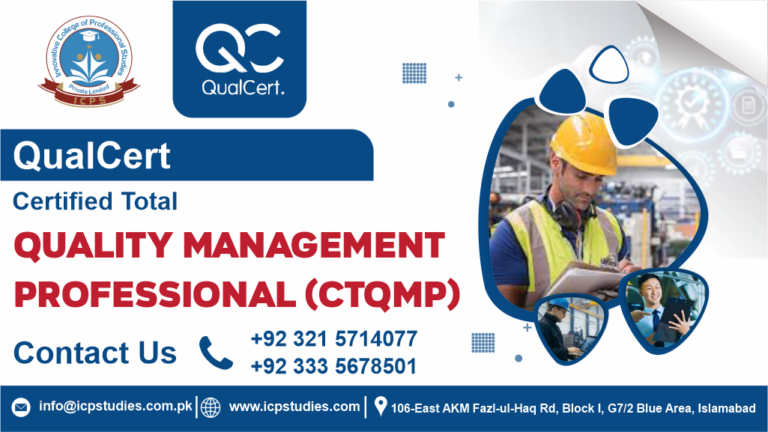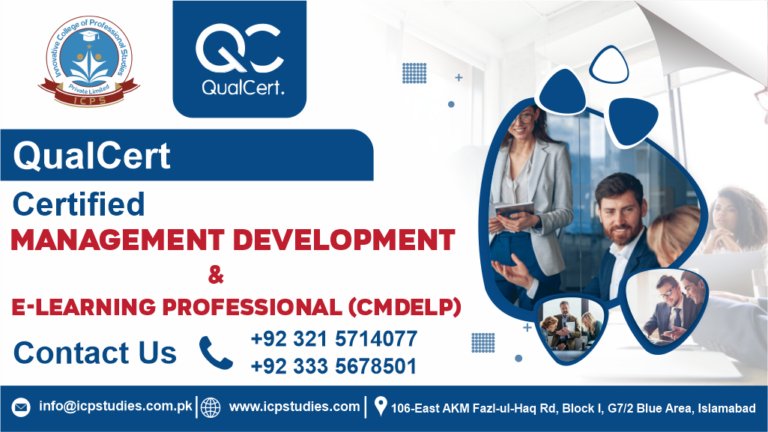In today’s competitive business environment, organizations recognize that their success largely depends on the talent and human capital they nurture. Human Resource (HR) professionals play a crucial role in shaping company culture, managing talent, and driving organizational growth. If you’re looking to advance your HR career, the Certified Human Resource Practitioner (CHRP) course is an excellent stepping stone.
The Certified Human Resource Practitioner (CHRP) course is a globally recognized certification designed for professionals who want to deepen their expertise in human resource management. The program offers a structured approach to HR practices, equipping learners with the knowledge and skills required to become strategic partners in any organization. With a focus on both foundational HR functions and modern practices, the CHRP course empowers HR practitioners to drive organizational success.
The Certified Human Resource Practitioner (CHRP) course is the perfect investment for professionals eager to take their HR careers to the next level. Whether you’re just starting out or looking to expand your expertise, this certification equips you with the skills, knowledge, and credentials to thrive in the dynamic HR field.
By completing the CHRP course, you’ll become a strategic partner in your organization, capable of aligning HR practices with business goals, driving organizational change, and fostering a positive workplace culture. Enroll today and begin your journey to becoming an HR expert!
All About Certified Human Resource Practitioner (CHRP)
Course Overview
The Certified Human Resource Practitioner (CHRP) course is an industry-leading certification designed for professionals who want to excel in Human Resource Management. Whether you’re new to HR or looking to enhance your existing knowledge, this course provides a comprehensive foundation in HR practices and strategies that align with organizational goals.
HR professionals today are key drivers of business success, responsible for recruiting talent, developing employee skills, managing performance, and fostering a positive organizational culture. The CHRP course covers essential HR functions while equipping you with the latest HR strategies and tools that can make a real impact in the workplace.
Through a combination of theoretical knowledge, practical applications, and case studies, you’ll gain a thorough understanding of HR principles, from recruitment to compensation, performance management to legal compliance, and much more. Upon completion, you’ll have the skills and confidence to take on strategic HR roles and make informed decisions that contribute to business growth.
This globally recognized certification not only enhances your HR skills but also increases your professional credibility, helping you stand out in a competitive job market. Whether you’re aiming for career advancement, a new role in HR, or a more strategic position within your organization, the CHRP course is the ideal step forward in your professional journey.
Study Units
| Introduction to Human Resource Management Recruitment and Selection Employee Relations Compensation and Benefits Management Training and Development HR Leadership and Strategic Management Employee Health and Safety HR Technology and Digital Transformation |
The Certified Human Resource Practitioner (CHRP) course is designed for individuals seeking to build or enhance their career in Human Resource Management. While the course is open to a wide range of participants, there are some basic requirements to ensure that you can successfully engage with the course content. Here’s what you need to know before enrolling:
- Educational Background
While there are no strict formal educational prerequisites, a basic understanding of business, management, or psychology is helpful. Many participants come from diverse academic backgrounds such as business administration, management, human resources, or even communication. - Work Experience (Recommended)
While the course is open to beginners, having prior experience in any HR-related role (such as recruitment, employee relations, or administration) is beneficial. However, if you’re new to HR, the course is designed to introduce you to foundational HR concepts and practices, making it accessible to individuals without formal HR experience. - Basic Computer Skills
Since the course includes online learning modules, you should be comfortable using digital tools, including email, web browsers, and basic office software (e.g., word processors, spreadsheets). If you’re taking the course online, you’ll need a reliable internet connection to access the learning materials and complete assessments. - English Proficiency
The CHRP course is conducted in English. Therefore, it’s important to have a basic level of English proficiency (both written and spoken) to ensure you can fully engage with the course content, assignments, and communications with instructors. - Commitment to Learning
The course requires dedication and time management to complete the study units and assignments. A strong interest in pursuing or advancing your career in HR, along with a willingness to engage in the learning process, will help ensure your success in the program. - Motivation to Develop HR Expertise
The CHRP course is designed for those who want to become well-rounded HR professionals. Whether you are seeking to grow in your current HR role or are transitioning into the field, a genuine interest in understanding HR principles and improving organizational effectiveness will help you get the most out of the course.
If you meet these basic criteria and are eager to enhance your HR skills and knowledge, the CHRP course is an excellent opportunity to accelerate your career in human resource management.
The Certified Human Resource Practitioner (CHRP) course is ideal for individuals looking to advance their career in Human Resource Management or those aspiring to transition into an HR role. Whether you are just starting out or have experience in the field, the course offers valuable knowledge and practical skills for professionals at various levels. Here’s who will benefit the most from the CHRP course:
- HR Professionals and Managers
If you’re already working in an HR role and looking to expand your knowledge or formalize your expertise, the CHRP course is designed to help you elevate your skills. It’s perfect for HR managers, generalists, and HR specialists who want to advance in their careers and enhance their strategic HR capabilities. - Aspiring HR Professionals
If you’re new to HR and looking to enter the field, the CHRP course provides a strong foundation in core HR practices. This course is ideal for those looking to gain the skills necessary to pursue a career in human resources and take on roles such as HR coordinator, HR assistant, or HR executive. - Business Leaders and Managers
For managers or business leaders, understanding HR principles is essential to creating high-performing teams and a productive work environment. The CHRP course will help you integrate HR strategies with business goals, improve employee management, and develop a more effective leadership style. - Recruiters and Talent Acquisition Specialists
If you’re working in recruitment or talent acquisition, this course will provide a deeper understanding of HR processes and policies, giving you the tools to attract and retain top talent, while aligning your recruitment strategies with organizational needs. - HR Consultants
HR consultants looking to expand their expertise will find value in the CHRP course. It covers key HR functions such as employee relations, performance management, and compensation, which can help consultants provide more strategic solutions to their clients. - Individuals Looking to Switch Careers to HR
If you’re considering a career change and are interested in human resources, the CHRP course will equip you with the foundational HR knowledge you need. Whether you come from a background in business, management, or another field, the course helps you transition into HR and offers a pathway into the profession. - Entrepreneurs and Small Business Owners
Entrepreneurs and business owners who handle HR responsibilities will benefit from the CHRP course, as it will teach you how to manage recruitment, employee relations, compensation, and other HR functions. The course provides you with the tools to build a solid HR foundation for your business. - HR Professionals Seeking Certification
If you’re looking to earn a recognized, industry-standard certification, the CHRP course is a great way to demonstrate your commitment to professional development. The certification can enhance your credibility and increase your job prospects in the HR field.
Learning Outcomes
- Grasp the critical role of Human Resource Management (HRM) in driving organizational success and achieving strategic goals.
- Explore the evolution of HRM, from its origins to its current form, and identify key contemporary trends influencing the field.
- Understand the various roles and responsibilities of HR practitioners and their impact on the overall functioning of modern organizations.
Unit 2: Recruitment and Selection
- Learn how to create effective recruitment strategies that attract top-tier talent to meet organizational needs.
- Conduct detailed job analyses, develop precise job descriptions, and define job specifications to ensure clarity and alignment with business objectives.
- Apply a variety of selection methods, such as interviews, psychometric tests, and assessments, to identify the best candidates for the role and cultural fit.
Unit 3: Employee Relations
- Understand the key factors that shape employee-employer relationships and the dynamics that influence workplace behavior.
- Master conflict resolution techniques to effectively manage grievances, disputes, and interpersonal challenges.
- Develop initiatives to promote a positive workplace culture, enhance employee engagement, and strengthen organizational cohesion.
Unit 4: Compensation and Benefits Management
- Design competitive salary structures and comprehensive benefits packages that align with both market standards and organizational goals.
- Efficiently manage employee benefits programs, including health insurance, retirement plans, and other perks.
- Evaluate and implement incentive and variable pay systems that motivate employees, improve performance, and foster organizational loyalty.
Unit 5: Training and Development
- Conduct thorough training needs assessments to identify gaps in skills and areas for professional growth.
- Develop and deliver engaging and interactive training programs using a variety of learning methodologies, such as e-learning, workshops, and on-the-job training.
- Assess the effectiveness of training initiatives and calculate return on investment (ROI) to ensure alignment with organizational objectives and employee development.
Unit 6: Performance Management
- Set clear, measurable performance goals (SMART goals) and establish systems for ongoing performance appraisals.
- Provide timely, constructive feedback and coaching to support continuous employee development and improvement.
- Tackle performance challenges proactively through performance improvement plans, fostering a culture of accountability and growth.
Unit 7: Legal Compliance and Ethical Practices
- Understand and apply key labor laws, regulations, and compliance standards relevant to HR practices.
- Promote diversity, equity, and inclusion in the workplace, ensuring fair treatment and equal opportunities for all employees.
- Uphold ethical standards in HRM, ensuring transparency, fairness, and integrity in all HR processes and interactions.
Unit 8: HR Metrics and Analytics
- Identify and utilize essential HR metrics and key performance indicators to assess the effectiveness of HR strategies.
- Leverage HR analytics to make informed, data-driven decisions that improve HR outcomes and organizational performance.
- Employ digital tools and HR technology to track, analyze, and report on key HR data, enhancing decision-making and operational efficiency.
Unit 9: Talent Management and Succession Planning
- Create and implement talent acquisition, retention, and development strategies that align with organizational needs.
- Identify high-potential employees and develop succession plans to ensure a strong leadership pipeline for the future.
- Design career development programs that support long-term employee growth, advancement, and engagement within the company.
Unit 10: HR Leadership and Strategic Management
- Apply various leadership theories and styles to effectively manage HR functions and drive HR initiatives.
- Develop and execute strategic HR plans that align with organizational goals and long-term business objectives.
- Lead change management initiatives and foster innovation within HR practices to enhance organizational competitiveness and adaptability.
Unit 11: Employee Health and Safety
- Ensure compliance with health and safety regulations and create a safe work environment in line with legal standards.
- Develop and implement comprehensive occupational health and safety programs that mitigate workplace risks and hazards.
- Promote employee well-being by creating programs that focus on physical, mental, and emotional health to support a productive and thriving workforce.
Unit 12: HR Technology and Digital Transformation
- Understand how technology is transforming HR practices, from recruitment to performance management.
- Implement Human Resource Information Systems (HRIS) and Human Resource Management Systems (HRMS) to automate and streamline HR operations.
- Utilize digital tools and HR technologies to improve employee engagement, manage performance, and support broader organizational goals in a digital-first world.
FAQs Certified Human Resource Practitioner (CHRP)

